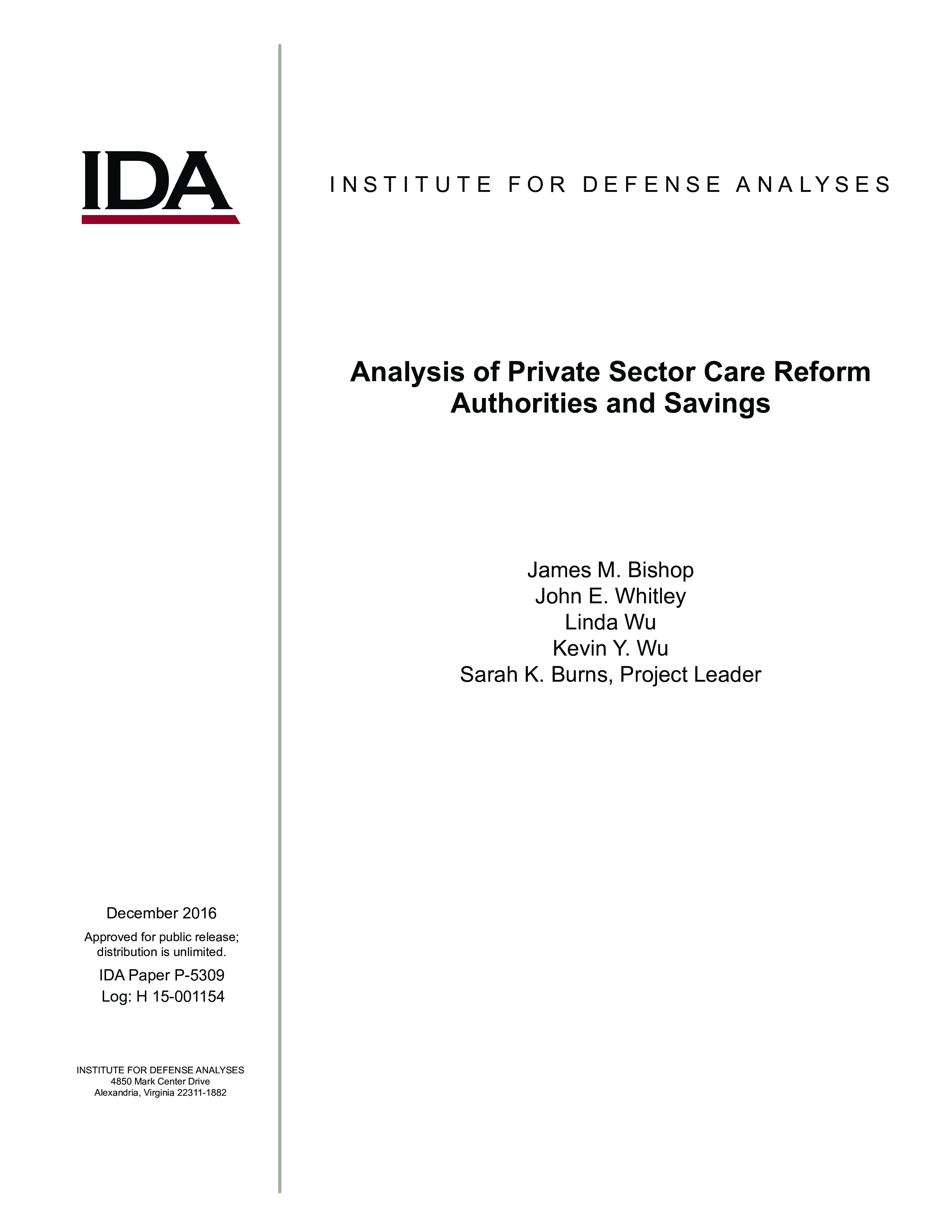Analysis of Private Sector Care Reform Authorities and Savings
December, 2016
IDA document: P-5309
FFRDC: Systems and Analyses Center
Type: Documents,
Talent Management
Division: Cost Analysis and Research Division
Authors:
IDA document: P-5309
FFRDC: Systems and Analyses Center
Type: Documents
Division: Cost Analysis and Research Division
Authors:
Authors
James M. Bishop, John E. Whitley, Linda Wu, Kevin Y. Wu, Sarah K. Burns
See more authors

